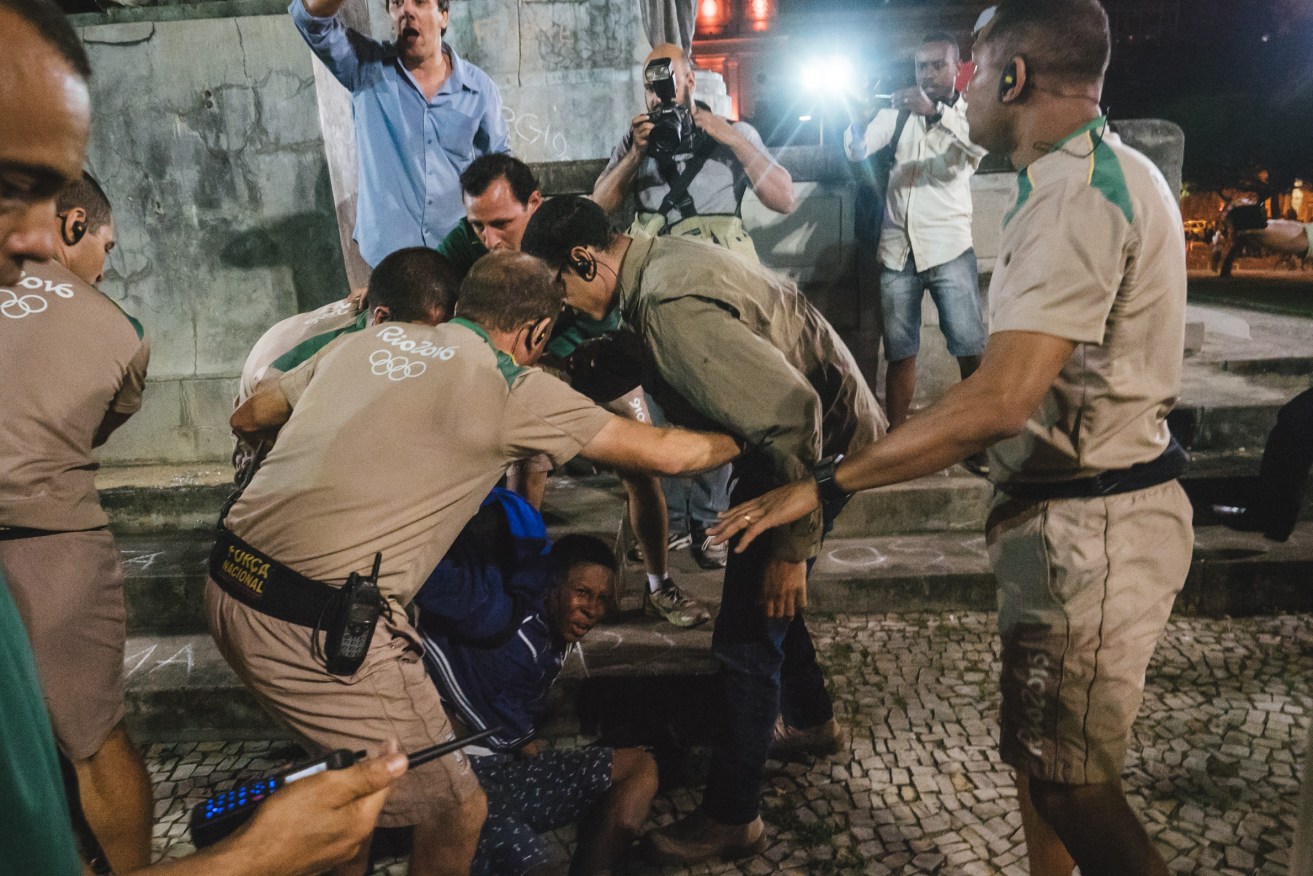Torch relay marred as police use stun grenades to clear path
Police used stun grenades and tear gas to clear protesters in the path of the Olympic torch in a poor suburb of Rio, two days before South America’s first Olympic Games open under tight security.

Protesters clash with Brazil's police officers during a demonstration against the Olympic torch relay. Photo: Jose Villalba / NewZulu / AAP.
Olympic Brazilian sailors earlier delivered the torch to the host city’s mayor after crossing Guanabara Bay near the end of a 20,000km journey through one of the world’s largest and most diverse countries.
The flame landed on terra firma at 9:15am local time, while just kilometres away 450 heavily armed police battled drug traffickers to carry out dozens of arrest orders in the Alemao slum, an area near the international airport and close to the main road to Olympic venues.
Armed soldiers stood patrol on highways and on many corners throughout the iconic beach city in Brazil’s largest security operation.
Some 85,000 police, soldiers and security personnel will be deployed in Rio, more than double the amount in London in 2012, to deter both violent street crime and the threat of attacks by extremists.
Police said anti-government protesters in Duque de Caixas, on Rio’s north side, threw rocks and blocked the torch’s path.
Police dispersed them with pepper spray and rubber bullets.
A video of the incident spurred social media criticism of the police and amplified complaints that the Games ignored the poor.
#Brazil: Police crackdown on the tour of the Olympic torch in Duque de Caxias, a suburb of #Rio2016. #TourDaTocha https://t.co/z2lehdQeKU
— Persona (@PersonalEscrito) August 3, 2016
Three people were injured by rubber bullets, including a 10-year-old girl, local media reported.
The clash, which came a day after anti-torch protests in nearby towns and amid several days of gang violence in northern Brazil, underscored social tension in the massive country.
The world’s largest sporting event comes to Brazil at a challenging time, in the midst of the country’s worst recession in at least a quarter century and an impeachment trial of a suspended president.
Many residents struggling with the dire economy question the wisdom of hosting the Olympics, a bid Brazil won in 2009 while the economy was booming.
Residents have faced hours of traffic jams in recent days as new express bus lanes ferrying athletes and visitors to sport venues take up highway space, leading Mayor Eduardo Paes to declare Thursday the fourth city holiday of the Games.
-Reuters




